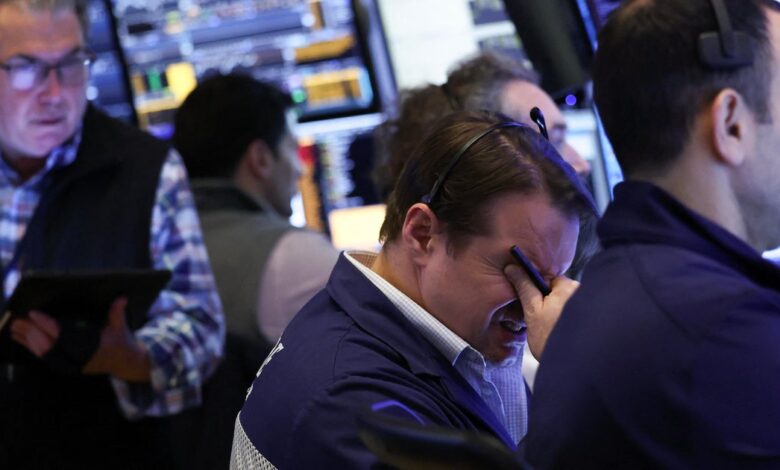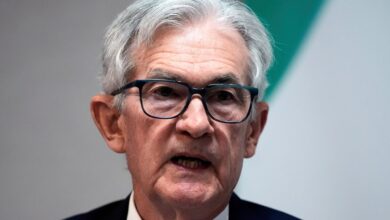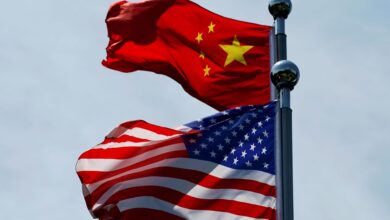Dow Jones plunges more than 1,600 points as stock market recoils from Trump tariff shock

The recent announcement of new tariffs by the Trump administration has sent shockwaves through the financial markets, with stocks plummeting in response. The Dow Jones Industrial Average saw a massive drop of 1,679 points, or 4%, while the S&P 500 experienced a 4.8% decline, its largest single-day decrease since the onset of the Covid-19 pandemic. The tech-heavy Nasdaq also took a hit, falling nearly 6%.
Investors are particularly concerned about the impact of the steep tariffs on technology companies, as the new duties target manufacturing hubs in China, Taiwan, Vietnam, and other key regions. This has led to a sharp decline in shares of tech giants like Apple, which saw a nearly 10% drop in its stock price.
The global repercussions of these tariffs are also being felt, with Asian stocks continuing to fall on Friday. Markets in Shanghai, Taiwan, Hong Kong, and Indonesia were closed for holidays, but Tokyo’s Nikkei 225 lost 4.3% and South Korea’s Kospi sank 1.8%. Futures trading in U.S. shares showed ongoing declines, though not as severe as the previous day’s plunge.
The widespread impact of the tariffs is evident in the performance of various industries, with tech players, banks, retailers, apparel makers, and airlines among the hardest hit. Companies like Best Buy, United Airlines, Nike, and Nvidia all saw significant drops in their stock prices.
President Trump’s decision to impose tariffs on U.S. trading partners has raised concerns about the potential economic consequences. Experts warn that escalating tariffs could lead to inflation, reduced consumer and business spending, and slower economic growth. Market uncertainty is expected to persist as investors reassess their economic and earnings growth forecasts.
Despite the turmoil in the markets, economists point out that the U.S. economy is still growing, with healthy hiring and a low unemployment rate. However, the possibility of a recession cannot be ruled out, and further signs of economic weakness could prompt the Federal Reserve to lower interest rates.
In conclusion, the impact of the Trump administration’s tariffs on the global economy remains uncertain, and investors are bracing for continued volatility in the financial markets. It is essential for businesses to closely monitor the situation and adapt their strategies accordingly to navigate these challenging times.





